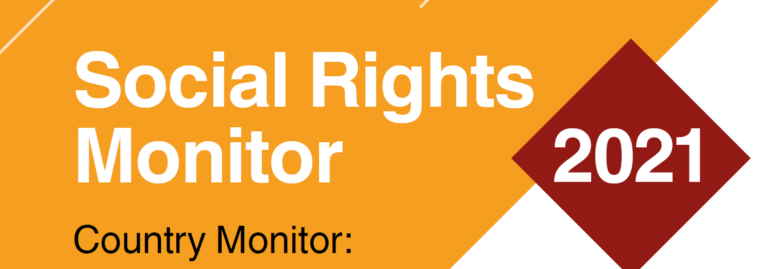Social Rights Monitor – Lebanon
Recommendations
The law on Associations in Lebanon is enabling to an extent, but the government must always be notified of the creation of new civil society organizations. Moreover, the law can be misapplied because of the administrative burdens, including administrative delays. On another level, the lack of funding impedes a well-operating civil society. Although there is no limitation when it comes to sources of funding, civil society organizations may become very dependent on donors’ conditions. Moreover, with the Syrian refugee crisis, budgets allocated to NGOs have been reducing significantly. Finally, the law on accessing information is yet to be implemented. It leaves activists who may express their own political views on social media more vulnerable to arrest or investigation. One example is the case of Mr. Selman Samaha who was accused of ‘offending the reputation of the military institutions’ after posting content related to the Lebanese military on his Facebook page. This reflects a situation where freedom of expression is not fully respected.
With the new EU and Lebanon Compact that covers the 2016-2020 period and aims at supporting stabilization, addressing the Syrian crisis and increasing the resilience of the Lebanese economy, the partnership between the EU and Lebanon should consider mutual accountability in addressing these long-running political, economic and social challenges. In this respect, the Partnership Priorities and their implementation through the Single Support Framework should be based on a human rights framework to ensure a revised approach within the new European Neighbourhood Policy. An explicit scheme geared to the promotion, protection and fulfilment of human rights should be adopted while benchmarks should be set to support each objective and to ensure their contribution to achieving human rights goals ensuring a holistic approach to human rights.
Based on the above report, the implementation of the Partnership Priorities and the Compact agreed between Lebanon and the EU should be shaped according to the following recommendations. The EU should support the Lebanese government in:
- Reforming the public health system in order to ensure universal coverage to all people in Lebanon, including strengthening the regulatory role of the state in order to ensure the quality and accessibility of healthcare services (public and private) to ensure the full enjoyment of the right to health by all without any discrimination. The health system should be free, universal and offer quality services;
- Revising its social protection policy, particularly to consider it as a tool for addressing inequalities. Accordingly, the right to social protection should be ensured as part of the redistribution policies; programmes and services shall be funded through dedicated and sustainable resources, based on the equitable distribution of wealth principle.
- Establishing a national development strategy centred on workers’ rights, employability and decent work;
- Establishing economic empowerment activities to ensure Syrian refugees’ access to productive resources while improving coordination between various initiatives, alongside ensuring the implementation of standards that guarantee migrant/refugee workers’ rights;
- Ensuring the accessibility and availability of up-to-date and disaggregated data on labour conditions to help more effective planning, as data on labour statistics are not accurate in Lebanon;
- Reforming the tax system in order to tackle the informal economy, stimulate demand for decent work and improve redistribution in Lebanon;
- Promoting civil society space and contribute to establishing a stable, open, dynamic and solidarity-based society considering that civil society can monitor and ensure accountability. Hence, regular and improved consultations with civil society organizations including trade unions should be in place. The government should build cooperation and partnership relations with civil society organizations while civil society shall maintain its complete and professional independence. Negotiation capacities should be enhanced.
Last but not least, stabilization and security remain at the top of the EU agenda. Focusing on stabilization as a political priority in merely security and economic terms turns has proved to be a key challenge for a mutually accountable partnership between the EU and Lebanon, and overall for the region. The domination of a ‘Euro-centric’ security approach has led to more focus on support for refugees in Southern Neighbourhood countries, yet this primarily transfers the burden to the partners and aims at securing the borders of European countries. Instead, the EU-Lebanon partnership should be based on a comprehensive approach to the development needs of the partner country. An inclusive approach to addressing the overarching political priority would benefit first from dissecting the existing situation and identifying the key constraints to political stability. The roots of these problems lie in a complex interaction between several factors that go beyond mere security, and include economic social and political elements. Thus, even stabilization should be founded on a strategy that essentially takes into account those different elements, including the achievement of social and economic rights.




